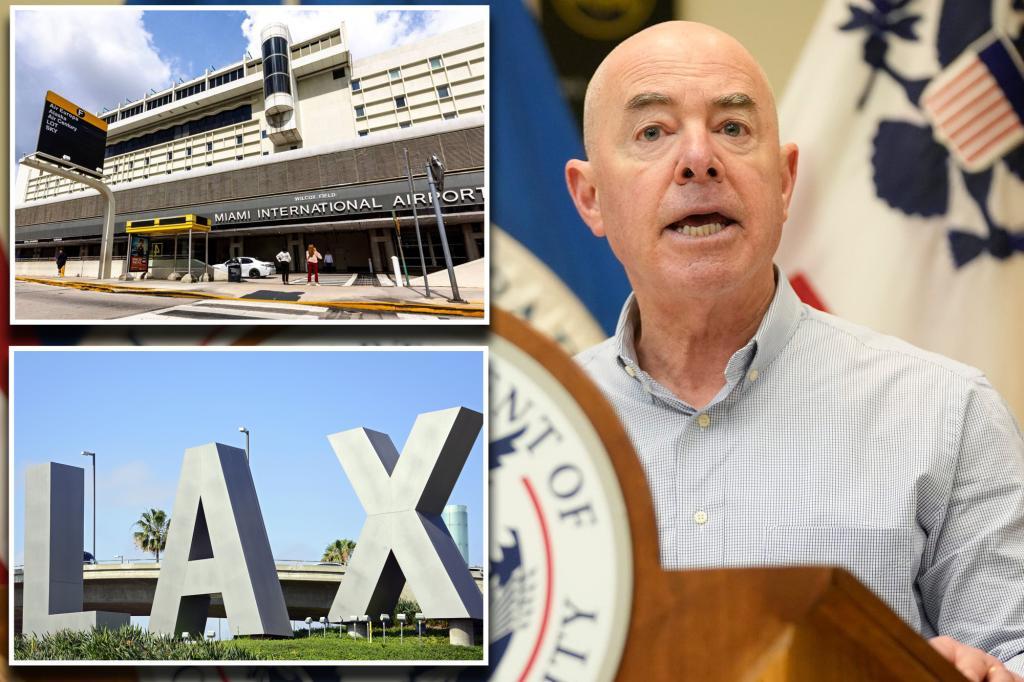The Biden administration’s mass parole program for migrants from Cuba, Nicaragua, Haiti, and Venezuela has resulted in the majority of qualifying individuals flying into Florida, as revealed in subpoenaed documents released by the House Homeland Security Committee. This program allows migrants with a US sponsor, who pass a background check and demonstrate the need for humanitarian reasons or significant public benefit, to enter the US through ports of entry, receive work permits, and remain in the country for two years. The Department of Homeland Security has processed over 400,000 migrants through this program, with the documents covering approximately 200,000 arrivals from January to August 2023.
The top 15 cities that individuals who qualified for this program flew into during the eight-month period include Miami, Fort Lauderdale, New York City, Houston, Orlando, Los Angeles, Tampa, Dallas, San Francisco, Atlanta, Newark, Washington D.C., Chicago, Las Vegas, and Austin. The House panel uncovered that there were approximately 1.6 million migrants awaiting approval to enter the US through the mass parole program as of October 2023, highlighting the scale of the program’s reach. The committee also noted that all individuals paroled into the US are considered inadmissible under immigration law, despite being allowed to enter under the CHNV process.
House Homeland Security Committee Chairman Mark Green criticized Secretary Mayorkas for implementing a program that allows otherwise inadmissible aliens to enter the US under the pretense of significant public benefit or urgent humanitarian reasons. Green expressed concern that the CHNV parole program was being used to conceal the worsening border crisis from the American people and described it as an unlawful sleight of hand. The committee initially requested information on the CHNV program in April 2023, and after significant delays from DHS, issued a subpoena to acquire the necessary documents and information.
Several states, including Florida, have filed lawsuits against the Biden administration to block the mass parole program, arguing that it effectively establishes a new visa program not supported by the law. Under the program guidelines, migrants must make their own travel arrangements, and it is open to 30,000 people from Cuba, Haiti, Nicaragua, and Venezuela per month. Despite the controversies surrounding this program and the legal challenges it faces, it continues to facilitate the entry of a significant number of migrants into the US, particularly through the state of Florida. The documents obtained through the subpoena shed light on the inner workings and scope of the CHNV parole program and the concerns raised by various stakeholders regarding its implementation and implications on immigration policy.













